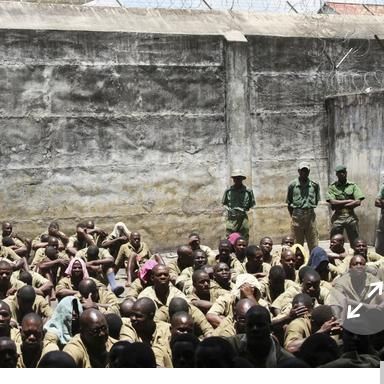
DRC to execute more than 170 people convicted of armed robbery
The recent transfer of over 170 death row inmates from Kinshasa to a high-security prison in Angenga has sparked mixed reactions in the Democratic Republic of Congo (DRC). The announcement made by Justice Minister Constant Mutamba, highlighted that the convicts primarily aged between 18 and 35 have been found guilty of armed robbery and are identified locally as “Kulunas” or “urban bandits.” This operation has raised significant concerns regarding human rights and the judicial process.
While some locals, like Goma resident Fiston Kakule, have expressed support for the government’s decision viewing it as a necessary step to curb urban crime and restore public safety. Human rights activist Espoir Muhinuka emphasized the risks of extrajudicial actions and insisted on the importance of adhering to judicial practices to prevent wrongful convictions and executions. He pointed out that underlying issues such as poverty, unemployment and social exclusion should be addressed in tandem with tackling urban gang violence.
Historically, the DRC has had a complicated relationship with capital punishment. Although the death penalty was abolished in 1981, it was reinstated in 2006. The last known execution occurred in 2003 and since then while there have been significant legal changes and military-related death sentences announced none have reportedly been carried out.
The situation remains tense as the Congolese government navigates the balance between maintaining security and upholding human rights, reflecting broader societal challenges that contribute to crime.
